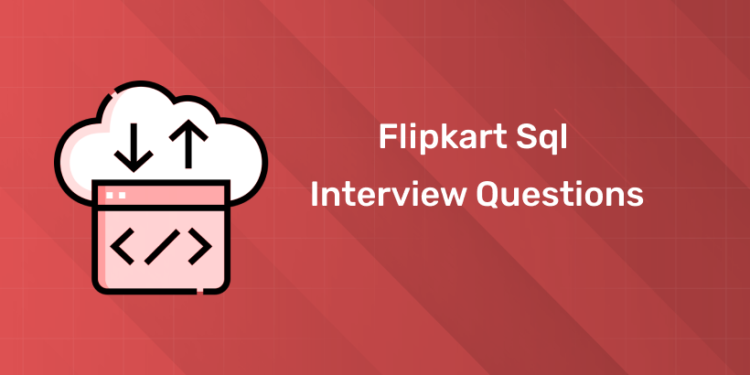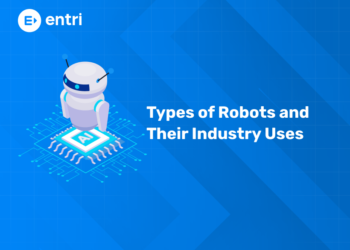Table of Contents
When it comes to getting a job at Flipkart one of the biggest e-commerce companies in India, SQL is a must. SQL (Structured Query Language) is the backbone of data management, extensively used in data-driven companies like Flipkart. Whether you are a fresher or an experienced professional, preparing for an SQL interview at Flipkart requires a good understanding of SQL concepts, ability to solve complex queries and familiarity with the company’s data management practices. This blog will help you with the most common Flipkart SQL interview questions, interview preparation tips and why joining Flipkart could be the best career move for you.
Why Join Flipkart?
Flipkart is not just a company; it’s an innovation hub that has changed the e-commerce landscape in India. Flipkart, dedicated to democratizing access to goods and services, fosters a dynamic workplace that encourages employees to think creatively and embrace challenges. Here are some reasons to join Flipkart:
- Innovative Work Culture: Flipkart encourages employees to bring new ideas to the table, making it an innovation hub.
- Growth Opportunities: The company has tremendous growth opportunities with clear career paths.
- Work-Life Balance:Flipkart supports a work culture that promotes work-life balance.
- Impactful Work: Working at Flipkart means working on projects that impact millions of users in India.
Flipkart Interview Preparation Tips
1: Which of the following algorithms is most suitable for classification tasks?
Preparing for an SQL interview at Flipkart requires a planned approach. Lets see some tips here:
- Understand Flipkart’s Business Model: Familiarize yourself with Flipkart’s operations, inventory management, logistics and customer data analysis. Understanding how Flipkart uses data will help you frame your answers.
- SQL Basics: Make sure you have a good grasp of SQL fundamentals, SELECT statements, JOINs, GROUP BY and ORDER BY clauses. Also, be comfortable with writing subqueries and aggregate functions.
- Practice Complex Queries: Flipkart tests candidates on writing and optimizing complex SQL queries. Practice writing queries with multiple joins, nested subqueries and window functions.
- Data Interpretation: You may be asked to interpret the results of SQL queries and make data-driven decisions. Practice interpreting data from query results and drawing insights.
- Mock Interviews: Conduct mock interviews with a friend or use online platforms to simulate the interview environment. Reviewing these questions will help you manage your time effectively and become familiar with the types of questions that might be asked.
- Stay Updated: Keep yourself updated with the latest trends in SQL and database management. Flipkart is a data driven company and showing your knowledge of recent developments will give you an edge.
Join our online Data Science Course! Begin a high-paid career!
🚀 Start Coding Today! Enroll Now with Easy EMI Options. 💳✨
Equip yourself with in-demand skills to land top-tier roles in the data-driven world.
Start Learning Now with EMI OptionsTop Flipkart SQL Interview Questions and Answers
Now lets check out some of the top SQL questions you may face in a Flipkart interview along with explanations and answers.
1.What is the difference between DELETE and TRUNCATE commands in SQL?
Answer:
- DELETE: The DELETE command removes rows from a table based on a condition. This DML operation, if necessary, can be rolled back. However, it doesn’t free the occupied space and allows triggers to be fired.
- TRUNCATE: TRUNCATE is a DDL operation that removes all rows from a table without logging individual row deletions. It is faster than DELETE as it doesn’t generate individual row delete triggers or logs. However, in most databases, the Delete command cannot be rolled back and resets any auto-increment counters.
2. Explain the concept of JOIN in SQL and its types.
Answer: JOIN combines rows from two or more tables based on a common column between them.. The main types of JOINs are:
- INNER JOIN: Returns records that have matching values in both tables.
- LEFT JOIN (or LEFT OUTER JOIN): Returns all records from the left table and the matching records from the right table. Unmatched records from the right table will be NULL.
- RIGHT JOIN (or RIGHT OUTER JOIN): Returns all records from the right table and the matching records from the left table. Unmatched records from the left table will be NULL.
- FULL JOIN (or FULL OUTER JOIN): It returns all records when there is a match in either the left or right table.
3. How to optimize a slow SQL query?
Answer: To optimize a slow SQL query you can follow these steps:
- Leverage Indexing: Optimize query performance with well-placed indexes on frequently searched columns.
- Minimize Data Retrieval: Select only essential data to reduce query overhead.
- Analyze Query Execution: Use EXPLAIN to identify performance bottlenecks and optimize your SQL.
- Efficiently Join Tables: Optimize JOIN operations by considering table order and types.
- Replace Subqueries: Improve query efficiency by converting subqueries to JOINs where possible.
- Early Filtering: Apply filters early in your queries to reduce the number of rows processed.
4. What is primary key and how is it different from unique key?
Answer:
- Primary Key: A primary key is a column (or set of columns) in a table that uniquely identifies each row in that table. It doesn’t allow NULL values and must have unique values.
- Unique Key: A unique key also ensures all values in a column are unique but allows one NULL value per column. While there can be multiple unique keys in a table, there can be only one primary key.
Join our online Data Science Course! Begin a high-paid career!
5. How can you retrieve the second-highest salary from an employee table?
Answer: You can retrieve the second-highest salary using a subquery:
SELECT MAX(Salary) FROM Employees
WHERE Salary < (SELECT MAX(Salary) FROM Employees);
This query first finds the maximum salary in the Employees table, then the outer query retrieves the highest salary that is less than this maximum, effectively giving the second-highest salary.
6.What are window functions in SQL and how are they used?
Answer: Window functions perform calculations across a set of rows that are related to the current row. Unlike aggregate functions, window functions do not group rows into a single output row. Here are some common window functions:
- ROW_NUMBER(): Assigns a number to each row within a partition.
- RANK(): Gives a rank to each row within a partition, with gaps in the ranking for ties.
- DENSE_RANK(): Similar to RANK(), but no gaps in the ranking.
- OVER(): The window or set of rows to apply the window function.
For example, to assign row numbers based on salary:
SELECT Name, Salary, ROW_NUMBER() OVER (ORDER BY Salary DESC)
AS RowNum FROM Employees;
Answer: ACID stands for Atomicity, Consistency, Isolation, and Durability. These are the properties that ensure transactions are reliable in a database:
- Atomicity: Atomicity requires the completion of all operations within a transaction. The transaction is rolled back if any operation fails, leaving the database unchanged.
- Consistency: A transaction ensures that the database transitions from one valid state to another, preserving database invariants.
- Isolation: Transactions operate independently, preventing interference from other transactions.
- Durability: Committed transactions are permanent, even in the event of system failures.
8. What is normalization? What are the normal forms?
Answer: Normalization is the process of organizing data in a database to reduce redundancy and improve data integrity. The normal forms are:
- First Normal Form (1NF): All columns contain atomic values and the table has a primary key.
- Second Normal Form (2NF): The table is in 1NF and all non-key columns are fully dependent on the primary key.
- Third Normal Form (3NF): The table is in 2NF and all columns are non-transitively dependent on the primary key (i.e., no transitive dependencies).
- Boyce-Codd Normal Form (BCNF): A stricter version of 3NF where every determinant is a candidate key.
9. How do you handle NULLs in SQL?
Answer: NULLs can be handled using these SQL functions:
- IS NULL / IS NOT NULL: To check if a value is NULL or not.
- COALESCE(): Returns the first non-NULL value in the list of arguments.
- IFNULL()/NVL(): Replace NULL with a specified value.
For example, to replace NULL with ‘Unknown’:
SELECT Name, COALESCE(Department, 'Unknown') AS Department FROM Employees;10. What is a CASE statement, and how is it used in SQL?
Answer: A CASE statement is used to implement conditional logic in SQL. It allows you to return different values based on conditions. Here’s an example:
SELECT employee_name,
CASEWHEN salary > 10000 THEN 'High'WHEN salary > 5000 THEN 'Medium'
ELSE 'Low'END AS salary_category
FROM employees;Conclusion
To prepare for Flipkart SQL interview you need to have good understanding of SQL concepts, hands on practice and familiarity with real world business scenarios. Reviewing the top interview questions in this blog will prepare you to demonstrate your SQL skills and problem-solving abilities in an interview. Remember to review the basics, practice complex queries and understand how data drives Flipkart’s business model.
Also consider to enhance your preparation by enrolling in Entri’s Data Science Course. This course will not only improve your SQL skills but also give you a broader understanding of data science and make you a more competitive candidate for Flipkart roles. With dedication, practice and right resources you can face your Flipkart SQL interview with confidence and one step closer to joining one of India’s largest e-commerce company. Good luck!
Related Articles
🚀 Start Coding Today! Enroll Now with Easy EMI Options. 💳✨
Equip yourself with in-demand skills to land top-tier roles in the data-driven world.
Start Learning Now with EMI OptionsFrequently Asked Questions
What is the interview process like for SQL positions at Flipkart?
The interview process for SQL positions at Flipkart typically involves multiple rounds, including an initial screening, a technical interview focusing on SQL skills, and a final HR interview. Candidates are tested on their SQL proficiency, problem-solving abilities, and understanding of data management principles.
How can I prepare for a Flipkart SQL interview?
To prepare for a Flipkart SQL interview, start by mastering SQL basics, practicing complex queries, and understanding Flipkart’s data-driven business model. Consider taking specialized courses like Entri’s Data Science Course to strengthen your knowledge.
What are some common SQL interview questions asked at Flipkart?
Common SQL interview questions at Flipkart may include topics like JOIN operations, query optimization, indexing, differences between DELETE and TRUNCATE, and writing complex subqueries. Being prepared to write and explain SQL queries is key.
Why should I consider a career at Flipkart?
A career at Flipkart offers a dynamic work environment, opportunities for growth, and the chance to work on impactful projects. Flipkart is known for its innovation and provides a supportive work culture with a strong focus on work-life balance.
How can Entri's Data Science Course help in preparing for Flipkart SQL interviews?
Entri’s Data Science Course offers comprehensive training in SQL, data management, and analytics, providing the skills needed to excel in Flipkart SQL interviews. The course covers essential concepts, practice exercises, and real-world applications to ensure you’re well-prepared.













